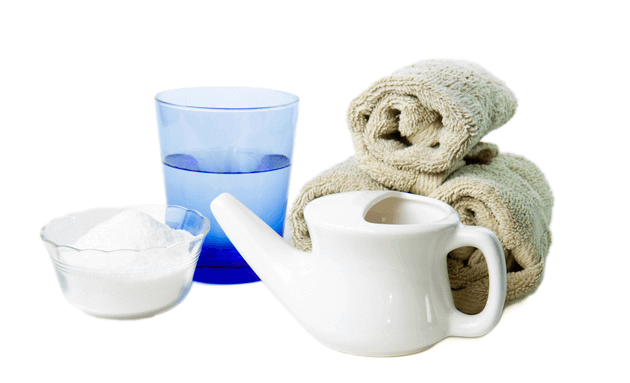6 Reasons You Have a Stuffy Nose
Nasal congestion, commonly known as “stuffy nose” is caused when tissues and blood vessels in and around your nose get swollen with excess fluid. This leads to a feeling of being “stuffed” in the nose, and is quite a hindrance in daily life. Most of the time, nasal congestion is not the cause of any underlying medical condition and can be managed if medicated on time.
Here Are 6 Reasons Why You Could Have Nasal Congestion
-
You Have Allergies

When allergens (allergy-causing substances) like pollen, mould, dust, or pet dander enter your nose, it can stimulate irritation. This condition is called “allergic rhinitis” and can cause an inflammation of the delicate lining of your nose, producing the sense of “stuffiness”.
-
You Have Nasal Polyps
Nasal polyps are non-cancerous, painless growths lining your nose and sinuses. They are usually caused by allergies and show symptoms like nasal congestion, facial pain, and inability to taste and smell.
-
You Have a Sinus Infection

A sinus infection is caused by a virus or bacteria and is often confused for allergies or the cold and flu. Symptoms include headache, inhibited sense of smell, face pain, and stuffy nose. Viral infections can easily irritate and inflame the tissues in your nasal passage and cause nasal congestion.
-
You Have A Deviated Septum
A deviated septum is a dislocation or off-centring of your septum - the cartilage that separates your nostrils. It causes difficulty breathing and blocked nostrils. A person is usually born with a deviated septum, and in some cases, it may be caused due to an injury to the nose. A deviated septum should be brought to notice only if you experience symptoms like nosebleeds.
-
You Overuse Nasal Decongestants

Nasal decongestants for sinus infections are good, but should not be overused. The membranes in your nasal canal might get used to the decongestant and lose the ability to treat congestion on their own. This can result in worse and chronic nasal congestion.
-
You're Sensitive to Dry Weather
If you live in a dry climate or spend hours around an air conditioner or dehumidifier, you would have experienced frequent nasal congestion. Dryness inflames your nasal tissues, giving you the sensation of congestion. Ageing is also a factor contributing to dry nasal tissues, that can lead to increased nasal congestion.
How To Treat Nasal Congestion
A congested nose can be rather annoying and disruptive. Most of the time, home remedies are enough to alleviate a stuffy nose.
Here Are the Top 5 Home Remedies to Treat Nasal Congestion
-
Take a warm shower

Steam from a warm shower can help thin the mucus in your nose and reduce inflammation. This will ease your breathing and return things to normal.
-
Opt for a saline nasal spray
A saline nasal spray will moisturise your nostrils and help clear the mucus in your nasal passages. Consult your doctor to choose the best nasal spray for your congestion.
-
Try Eucalyptus oil

Add a few drops of Eucalyptus oil in hot water and inhale the steam. Inhaling the oil can decrease inflammation of the nasal lining and make breathing easier.
-
Stay hydrated
Staying hydrated will help flush out the fluid buildup in your nose and decrease pressure on your sinuses. This will ease out your nose and help you breathe better.
-
Flush Out Your Sinuses

Neti pots are devices that help you drain out the fluid buildup in your sinuses. It uses saltwater that flushes your sinus and clears out mucus and other irritants causing nasal congestion. Neti pots are available in pharmacies. Ensure you follow hygiene guidelines as prescribed before using it.
When You Should See A Doctor

Sometimes, home remedies are not enough to treat chronic nasal congestion. If you’re experiencing any of the following symptoms, you should consult a doctor at the earliest:
- Congestion for more than 10 days
- Congestion with high fever for more than 3 days
- Green or bloody nasal discharge
- Sinus pain and fever
- The weakened immune system, asthma, or emphysema
Once your doctor diagnoses the cause of your nasal congestion, you will be prescribed treatment. If your condition does not respond to medications, you may be advised surgery as well.
Call Us For More Details: +91 97525 10101






